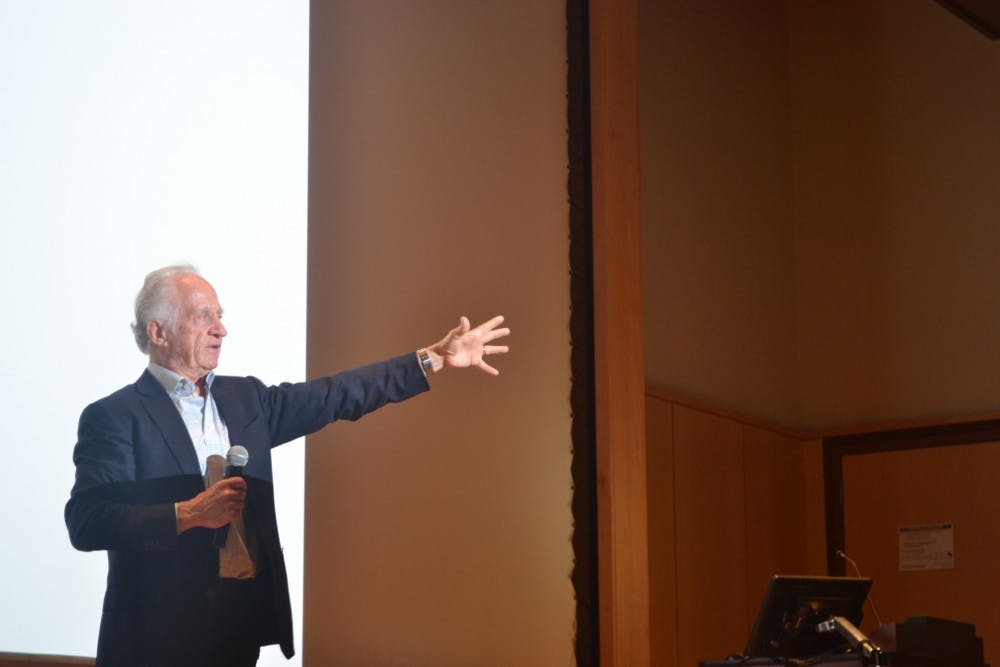The UNC School of Medicine welcomed Dr. Mario Capecchi, distinguished professor of biology and human genetics at the University of Utah as the keynote speaker at the Seventh Annual Oliver Smithies Nobel Symposium on Tuesday.
In 2007, Capecchi, Oliver Smithies and Martin Evans of Cardiff University in Wales were awarded the Nobel Prize for their work in physiology or medicine. Using their independent work, the three devised a technique to introduce specific gene changes in mice in an effort to establish the roles of individual genes in health and disease.
This year’s symposium focused on the topic of technology driving changes in scientific methodology. The increasing pace of scientific understanding is leading to a new interdisciplinary approach and adaptability between fields.
Capecchi said with the current environmental landscape, new technology provides a way to do things never done before.
“If you look at the history, often it takes almost 20 years between understanding something and then having a solution in terms of human health,” Capecchi said. “But my guess is that this will be shortened as time grows simply because other technology will come along. One can take advantage of past knowledge to now speed things up for the future.”
The Oliver Smithies Nobel Symposium began in 2011 with a generous gift from the eminent scientist and Nobel laureate for whom it is named.
Oliver Smithies was a professor of pathology and laboratory medicine at UNC from 1988 until his death in January 2017. When he was awarded the Nobel Prize in 2007, Smithies divided his prize money into thirds and gave it to the three universities that were influential in his life: University of Toronto, University of Wisconsin and UNC.
With his donation, Smithies had the goal to expose young researchers to prominent scientists, so they could learn firsthand about the excitement and the disappointment that goes along with the discovery process.
The day opened with a panel discussion about the evolution of scientific research over the last 50 years, and ended with Capecchi's keynote lecture.



